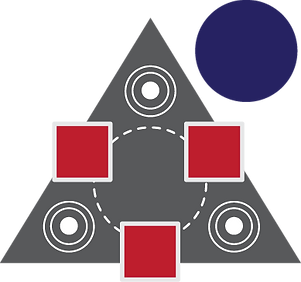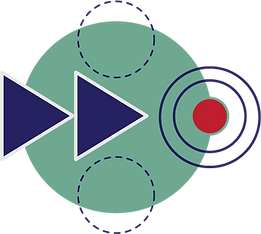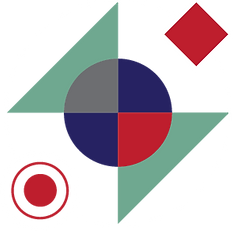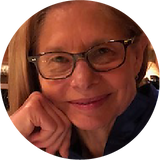dies
Democracy


Boston Graduate School of Psychoanalysis
1581 Beacon St, Brookline, MA (Boston metro area)
STRUGGLING TO STAND:
Leadership, Authority, and Power as

An In-Person Experiential Group Relations Conference
Sponsored by the Center for the Study of Groups and Social Systems (Boston)
Sponsored by:
October 18 - 20, 2025
Saturday to Monday
DIRECTOR'S INVITATION
All over the world, democracy is being challenged by authoritarianism. Two-thirds of the existing nations have in recent years experienced backward slides in their levels of democracy. Nearly 40% of the global population now lives under authoritarian rule. Political rights and civil liberties are being eroded. “The rejection of pluralism—the peaceful coexistence of people with different political ideas, religions, or ethnic identities—by authoritarian leaders and armed groups is producing repression, violence, and a steep decline in overall freedom” (Freedom House 2024). Violent conflict driven by authoritarian aggression is causing death and destruction and is imperiling the human right to self-determination.
The challenge to democracy is also within us. How often do we find our own thoughts and behavior taking on an authoritarian cast as we grapple with our urges to dismiss, silence, and erase those whom we dislike, who disturb us, and who seem so different than us? How often at such times do we find democracy, peaceful coexistence, and pluralistic inclusion dimming as guiding lights despite being among our most often espoused values and ideals?
Amid these challenges to democracy, and in the face of what may be its death throes, the responsibility and challenge of leadership remains, a challenge that requires us to speak with authenticity and courage to what we see, hear, think, and feel. This ‘conference’, offered as a resource in taking up the challenge of leadership, will be an experiential learning event conducted in the Group Relations tradition. As such, it will not feature experts delivering slide presentations to relatively passive learners. Instead, it will be an opportunity to grapple with its title theme in the context of a temporary organization that participants and staff will co-create. Within that organization, we will explore together our here-and-now experience of engaging with each other across various roles within a living system. Focused primarily at the level of the group, we will pay attention to what is happening at both the conscious and unconscious levels, and to how the title theme manifests among us. We will explore our very human needs, wishes and fears, both rational and irrational, in ways that connect these to the challenges to democracy that confront us, including those inside us. We will not work with the theme “out there,” but rather “in here” within the groups we form during the event. This intense experiential learning will help us grow our understanding and expand our options for action, enabling us to work more effectively amid the struggles that we face. We invite you to join us on this journey.
mak wemuk, JD
Conference Director


METHODOLOGY
This is a different kind of conference, one in which learning will be primarily through experience. Within a structure provided, participants will co-create a temporary organization and culture, engage with each other in that living system, and continuously reflect on the collective and individual experiences they are having.
Using their here-and-now experiences, participants will seek to better understand both conscious and unconscious systemic processes encountered in the exercise of leadership, authority, and power, with particular attention to the ways in which these processes connect to the conference theme. By focusing on both conscious and unconscious processes, participants will learn to better see and hear both what is above the surface and what is beneath it. Participants may find themselves developing new narratives and testing new ways of increasing group and individual effectiveness.
OPPORTUNITIES FOR LEARNING
Participants will have opportunities to:
-
Observe, take part in, and analyze both covert and overt group processes through participating in groups that vary in size, structure, and task.
-
Observe, take part in, and articulate underlying patterns of group interaction by forming groups, establishing leadership structures, and relating with other groups and the institution as a whole.
-
Observe, experience, and articulate how we collectively and individually take up roles, negotiate authority, accomplish tasks, cross borders, and manage anxiety in a changing context.
-
Observe, experience, and discuss the fluidity of power and authority; the way power, roles, identities, tasks, and boundaries might shift or become more rigid in response to an emergent context.
-
Observe, experience, and discuss the difference between the stated task of a group and the task it appears to be pursuing.
-
Observe, engage in, and articulate collective and personal reactions to well-defined authority and clearly delineated boundaries.
-
Observe, experience, and articulate how varied aspects and perceptions of individual identity such as race, class, gender, age, ethnicity, sexual orientation, and education level are used by groups with and without the conscious awareness of the individuals involved

PRIMARY TASK & PURPOSE
The primary task of this conference is to study conscious and unconscious dynamics arising in the exercise of leadership, authority, and power—and the relatedness of these dynamics to the conference theme—as they unfold in the here-and-now through the taking up of roles in a temporary system.
The purpose of the conference is to build leadership capacity for one’s life outside the conference and to develop a spirit of inquiry into the lived experience of organizational life.
Image by rawpixel.com
CONFERENCE EVENTS
In general, a Group Relations conference offers participants a combination of “here-and-now” events and reflective events. In the “here-and-now” events, participants study what is going on in the moment, paying particular attention to unconscious dynamics and looking at the group-as-a-whole, rather than simply intrapersonal or interpersonal dynamics. In the reflective events, participants are invited to reflect on, make meaning of, and apply their experiences. The descriptions below provide more detail about various events.

Small Groups
Each participant is assigned to a Small work Group consisting of 8-12 participants and a consultant. The task of the Small Group is to study the exercise of leadership, authority, and power as it unfolds in the here-and-now, and the relatedness of what unfolds to the conference theme. The Small Group is a setting that allows face-to-face interchange.
Large Group
The Large Group consists of all conference participants and 3 consultants. The task of the Large Group is the same as that of the Small Groups, but in a setting that makes face-to-face interaction difficult or impossible. As such, it highlights dynamics that may occur in communities and large organizations or gatherings, where personal interactions are limited.


System in Action Event
In this event, participants form their own groups. The emphasis in this event is on learning from the interactions between groups, including the staff group. Participants and staff examine the system of this event as it evolves and unfolds, including its relatedness to the larger conference system. Staff provides consultation to the groups upon request.
Review Groups
Participants are assigned to a group of 5-6 people and a consultant. The Review Group provides members with the opportunity to review their experiences in the conference to that point and consider what and how they are learning. Participants will have an opportunity to explore connections between their experiences in the conference and their experiences in communities, organizations and groups in the outside world.


Conference Discussion
In this event, participants and staff have an opportunity to collaborate in reviewing and analyzing their experiences in the conference as a whole. Throughout the conference, participants and staff may have taken up several roles and experienced many kinds of relationships with each other. The Conference Discussion is an opportunity to recognize and discuss feelings, attitudes, and behaviors, and to perhaps discover patterns of action or deeper levels of significance with implications and applications to our outside communities and organizations.
Social Dreaming Matrix
In this event, participants and staff explore the state of the conference system through their dreams and associations.

Post-Conference Reviews
These sessions provide additional opportunities for participants and staff to reflect on conference learning about unconscious processes in groups, the roles that are taken up in groups, how splitting and projection affect groups, and the relatedness of these and other dynamics to the conference theme. Participants and staff may attend one or both sessions or none at all. Following the conference, an invitation to participate in the post-conference review sessions will be sent out. The dates and times are:
-
November 19, 2025, 7:00 p.m. - 830 p.m. ET
-
November 22, 2025, 10:00 a.m. - 11.30 a.m. ET

CONFERENCE STAFF

Members of the staff design and manage the conference as a whole. As collective management, they manage the boundaries of conference events, particularly in relation to time, task and territory. Staff do not manage the participants or their behavior, but instead collectively manage the boundary conditions that allow the participants freedom to engage the primary task as they choose and as they authorize themselves and each other to do.
The consulting staff serve the purpose of the conference by linking their own experiences to the conference activity and offering observations, reflections and working hypotheses that explore both the conscious and unconscious aspects of the process that is emerging. Their observations and interpretations focus at the level of the group and not on the individual. Throughout the conference the roles staff members take are open for examination and reflection by participants and the staff themselves. It is the purpose of all staff roles, whether administrative or consulting roles, to encourage and support participant awareness, analysis, reflection, and understanding of the emerging conference dynamics.
DIRECTORATE & ADMINISTRATION
mak wemuk, JD
Conference Director and Consultant

(he, him) mak wemuk is indigenous (of the Coahuiltecan peoples) and Latine (Chicanx). He is an executive coach and leadership development practitioner, and a consultant in the areas of health equity, racial equity, and organizational development (Luna Consulting & Coaching). He is Vice President of the Washington-Baltimore Center for the Study of Group Relations; a Co-Creator of Group Relations International; a member of the Center for the Study of Groups and Social Systems (Boston), a practitioner in the Insight for Community Impact network; a Fellow, Director Development Mentor, and the Conference Committee chair for AKRI; a Past-President of the National Association of Latino Healthcare Executives (NALHE); and a member of the National Lawyers Guild. He is the father of four powerful young women and is based in the Chicago area.
Journée, MA
Associate Conference Director and Consultant

Journée is a Doctoral candidate at Saybrook University. Journée’s research meets at the intersections of gender, race, identity, and spiritual transformation. In addition, Journée supports the global community as an executive leadership coach. Journée is administrator and Co-Creator of Group Relations International; member of Association of Black Psychologists, Inc.; member of American Psychological Association; owner of Wisdom Wear. Journée is a mother of one daughter and proud grandmother of two.
Hannah Goldstein, Psy.D.
Director of Administration

(she/her). Hannah is a recent graduate of the George Washington University Professional Psychology Program. Her relational and clinical values center psychodynamic, anti-racist, and liberatory lenses. Formerly a student of English literature, Hannah is interested in language as a medium and the ways it is used to invoke and subvert power. She is a member of the Philadelphia Society for Psychoanalytic Psychology, Section IX (psychoanalysis for social responsibility), and the Washington Baltimore Center for Group Relations.
Mo Sook Park, Ed.M.
Associate Administrator

Mo is a Leadership and Organizational Development consultant who founded of i-D Leadership Consulting to increase the adaptive capacity of organizations. Mo is an Adjunct Lecturer at the Harvard Graduate School of Education where she teaches a class to doctoral students that integrates adult development, Adaptive Leadership, and systems psychodynamics. She is a certified consultant with the A.K. Rice Institute.
CONSULTING STAFF
Rebecca Abell, PsyD, CGP
Consultant

(she/her) Rebecca is a clinical psychologist who works in Outpatient Behavioral Health at Washington Hospital Center in Washington, DC. She is Director of the Psychology Externship and has a focus in facilitating and training students in facilitating group psychotherapy. She is affiliated with the A.K Rice Institute, the Washington Baltimore Center, the Center for the Study of Groups and Social Systems, and Group Relations International and has held various roles within these organizations. She is a parent to three young children. She cares deeply about the environment, making quality healthcare accessible, and challenging weight stigma.
Diana Castañeda, MA, LCPC
Consultant

(she/her/ella) Diana is the daughter of Mexican immigrants and a first-generation Chicagoan. She is a psychotherapist specializing in trauma, including racial and systemic trauma, and spent over a decade in the community mental health field serving low-income families on the west side of Chicago. Diana is a Certified Consultant of the A. K. Rice Institute for the Study of Social Systems and a member of the Chicago Center for the Study of Group and Organizations. She is a clinical consultant for the fellowship program at the Chicago Center for Psychoanalysis and Psychotherapy and a Professional Mentor for the Braven organization.
Rosette Cirillo, Ph.D.
Consultant

(she/her) Rosette is a full-time lecturer on education at the Harvard Graduate School of Education, where she is core faculty for their Teaching and Teacher Leadership program. Her research presences the inner lives of teachers and their relationship to death and dreams in their pedagogies. She is a consultant and coach for educational and workplace ethics, inclusion, and power dynamics in groups at Leadership Lab International. She has served as a board member for the Boston Center for the Study of Groups and Social Systems and is a current member of both CSGSS and the A.K. Rice Institute for the Study of Social Systems. She is a proud former Chelsea Public Schools teacher and first-generation scholar.
Amy B. Freed, MA, LCPC
Consultant

(She/Her) Having graduated from Northwestern University with a Master’s in Counseling Psychology in 1997, Amy is currently the owner and primary therapist of ABFpractice, LLC, a private firm specializing in psychotherapy and consultation outside of Chicago. In addition, once a member of the core faculty, Amy now serves as a clinical supervisor for students in their practicum and internship years in the Master’s in Counseling program at Northwestern University. She has been a part of the Group Relations world since 1995 and has served in many roles from Administrative Director to Small and Large Group Consultant, to Conference Co-Director. Amy uses a psychodynamic lens in both therapy and Group Relations, looking for underlying patterns and themes in feelings, behaviors, and ways of relating. She is also the proud mother of two awesome children and a 14-year-old Schnoodle named Ruben.
Linda Gelda, LICSW
Consultant

Psychoanalysis, Psychotherapy and Leadership Coach. Private Practice, Newton, Ma. Specialize in trauma work, including racial and systemic trauma that includes working on my own unconscious participation. Past-President, Faculty, Supervisor and Board member, Massachusetts Institute for Psychoanalysis. Consultant, A.K. Rice Institute for the Study of Social Systems; member, Center for the Study of Groups and Social Systems (Boston). “I love GR work. It is one of the few places where we bring our honest, vulnerable, and authentic selves. It’s a place to engage and speak to unconscious dynamics that are always operating below the surface.” I am also a ceramic artist Lindageldapottery.com and grandmother to four small children.
Leon Anthony James, RN, BSN, MA
Consultant

Leon is a registered Nurse, researcher, and photographer. As a nurse he specializes in Infectious disease & epidemiology, mental health, and emergency medicine. Leon lives in Baltimore, Maryland. Member, Washington Baltimore Center for the Study of Group Relations, Member of the WBC Wells School Steering Committee, Member, Association of Nurses in AIDS Care, and Member, International AIDS Society. Proud second-generation Jamaican, graduate of a HBCU, and a Baltimorean-New Yorker-Baltimorean.
rev. lyla meadows, MDiv, BCC
Consultant

(she/her/ella) lyla is a psychodynamic-informed spiritual caregiver currently residing in the territory of xučyun (Huichin), the ancestral and unceded land of the Chochenyo-speaking Ohlone people. She is a trans woman of European and Andean ancestry, and serves as a Board Certified Clinical Chaplain, an Ordained Interfaith Minister, and a Spiritual Director. She has spent over a decade organizing for racial justice, food and water access, labor rights, and transformative justice. lyla is also a regenerative farmer and gardener, polyamorous leatherdyke, novice mesayoq, and auntie.
John Weng, PhD, PCC, ACTC
Consultant

(he, him) John is a first-generation Asian American. He is a leadership coach, facilitator, and coach supervisor (John Weng Consulting LLC) providing human-centered leadership learning experiences and learning journeys to leaders, teams, and organizations across the globe. He is a Certified Consultant of the AK Rice Institute for the Study of Social Systems, a Co-Creator of Group Relations International, and a Fellow for the International Leadership Association.
The conference gratefully acknowledges the mentorship provided by
Jack Lampl, AKRI Fellow, to the Director of Administration.

WHO IS
THE CONFERENCE FOR?
This conference is open to anyone wanting an opportunity to learn through immediate and direct experience about group dynamics, influence, and about overt and covert actions involved in the exercise of leadership, authority, and power. No particular background or experience is necessary to participate. People from a wide variety of fields and organizations and industries have participated in CSGSS conferences including but not limited to individuals from educational institutions, foundations, healthcare systems, mental health and addiction centers, first responder units, nonprofits of all sorts, community organizing, technology companies, organizational and management consulting, national volunteer programs, arts organizations, and various business enterprises.
CONFERENCE SCHEDULE
All Conference Events will begin and end precisely at the times scheduled. The conference will begin promptly at 9:00 AM Eastern on Saturday, October 18, 2025, and end promptly at 5:05 PM Eastern on Monday, October 20, 2025.
Saturday, October 18 The Conference Opening is at 9:00 AM Eastern.
Saturday events end at 6:55 PM Eastern
Sunday, October 19 Sunday events run from 9:00 AM to 8:35 PM Eastern
Monday, October 20 Conference events run from 9:00 AM to 5:05 PM Eastern

FAQ
Location
All conference events will take place at the Boston Graduate School of Psychoanalysis, 1581 Beacon St, Brookline, MA (Boston metro area).
Attendance
This conference is designed as an integrated experience with each event building on the one previous. Participants should plan to attend all events.
Continuing Education
The conference expects to offer approximately 20 Continuing Education credits/clock hours for Psychologists (all levels), Mental Health Counselors, and Social Workers. Notice, including the exact number of hours, will be posted here once the appropriate CE-granting bodies have approved our application.
Fee Reduction
A limited number of reduced-fee registrations will be available for those with true financial need. Please contact the Director of Administration, Hannah Goldstein, at csgssweekend@gmail.com for details before you register. Please be prepared to submit a written, clear, and compelling explanation of your financial need.
Withdrawal Policy
Fees can only be refunded (less a $85 administration charge) if a written notice of cancellation is received by 11:59 PM Eastern on September 22, 2025.
Confidentiality
Staff will not report the behavior of any individual member to anyone outside the conference.
Stress
The conference is an educational endeavor and does not provide psychotherapy or counseling. Although the experiential learning available can be stimulating and enriching, it can also be emotionally stressful. Thus, applicants who are ill or experiencing significant personal difficulties should forgo participating at this time.
FEES
(due in full upon registration)
Early Registration by
September 22
Non-Discounted Rate
Current Members of CSGSS, GRI, ICI,
AKRI, and BGSP Faculty and Staff Rate
Group Rate*
Full-Time Student Rate**
$545
$495
$495
$295
Regular Registration by
October 9
$595
$545
$545
$345
* Group rates are for 3 or more participants coming from the same organization.
** Full-time students must submit copy of current student ID
One discount per application. A limited number of reduced-fee registrations will be available for those with true financial need. The number and amount of these reduced-fee registrations will be based on the overall enrollment of the conference relative to the number of applicants seeking reductions. To inquire, please contact the Director of Administration, Hannah Goldstein, at csgssweekend@gmail.com before registering. Please be prepared to submit a written, clear, and compelling explanation of your financial need.

RECOMMENDED READINGS

SPONSORSHIPS AND
ENDORSEMENTS

The Boston Graduate School of Psychoanalysis (BGSP) is approved by the American Psychological Association to sponsor continuing education for psychologists. BGSP maintains responsibility for this program and its content.
The Boston Graduate School of Psychoanalysis has been approved by the National Board of Certified Counselors (NBCC) as an Approved Continuing Education Provider, ACEP No. 5676. Programs that do not qualify for NBCC credit are clearly identified.
The Boston Graduate School of Psychoanalysis is solely responsible for all aspects of the programs. Application for social work continuing education credits is being submitted.
Please contact BGSP at ContinuingEd@BGSP.edu for the status of social work CE accreditation.
For information on continuing education credits, call BGSP at 617-277-3915.











